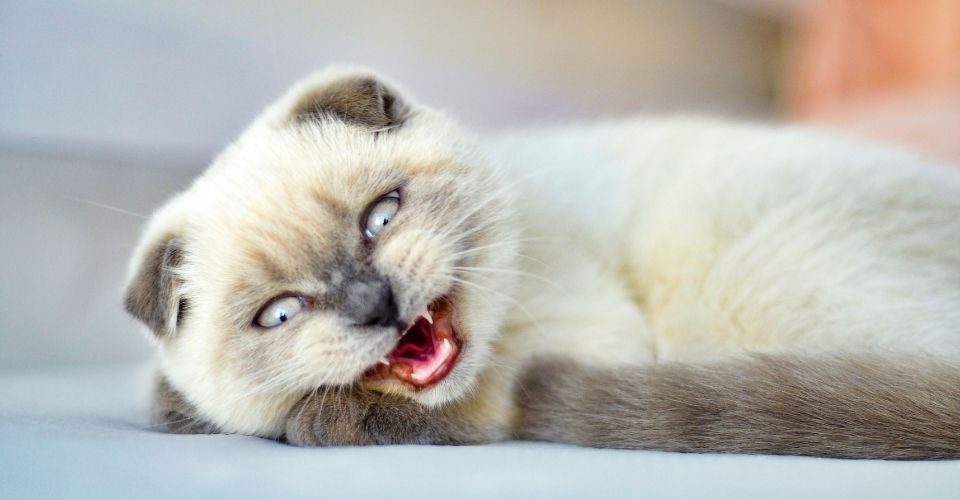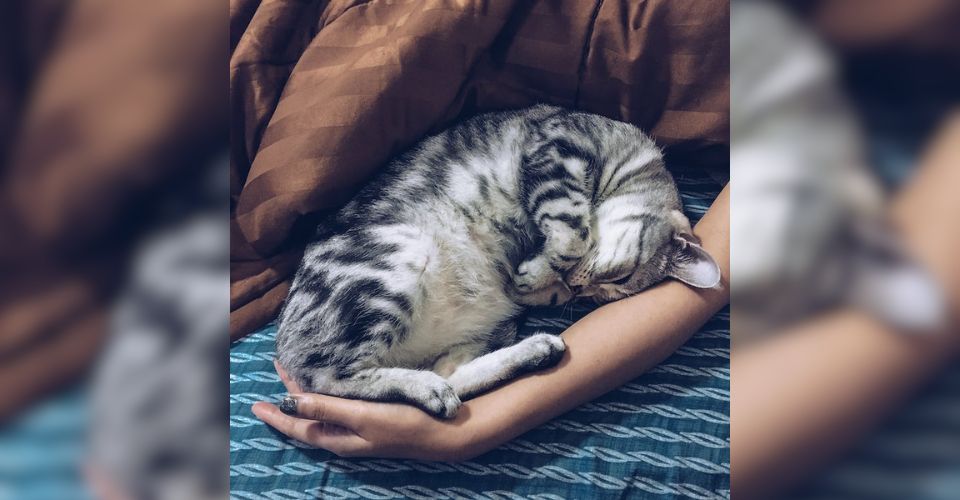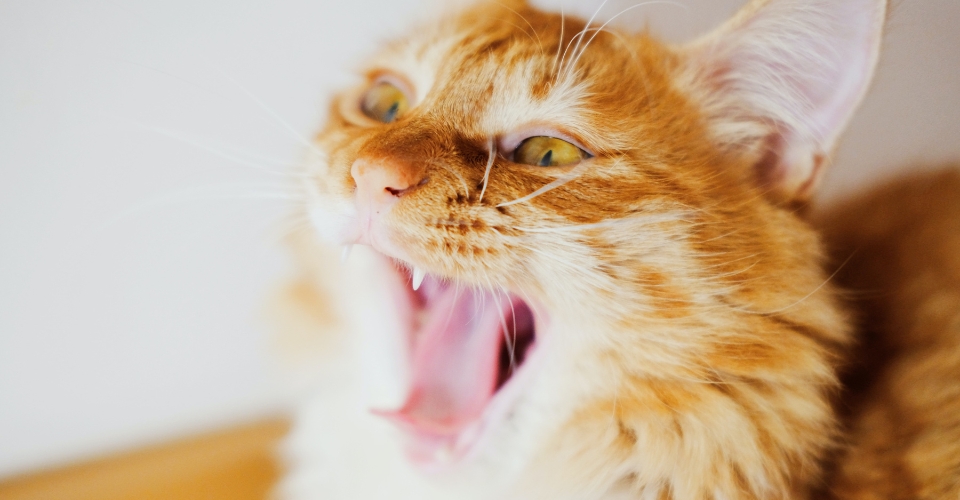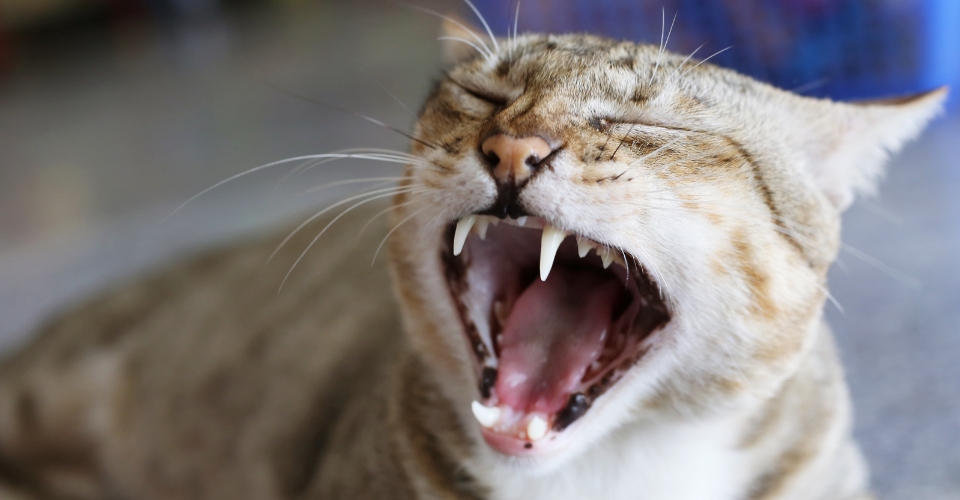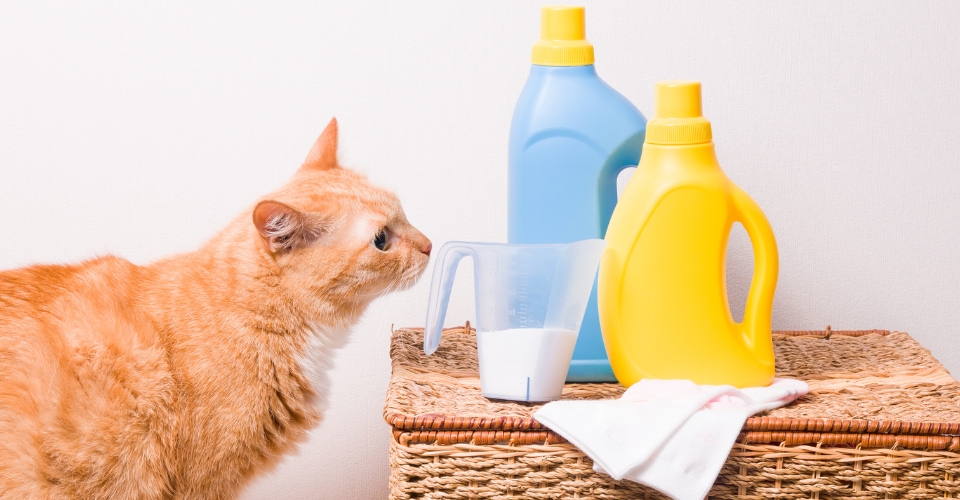Did you bring home a new cat? Has the new cat been hissing at you? Or is she hissing at your old cat? Or is it your dog that she is hissing at?
Are you worried—probably a bit afraid—about your cat hissing and growling?
Well, you are not alone. Cat hissing is something that almost every cat owner has to experience. Many cat breeders often get a call from the cat parents who just adopted a cat, asking: Why is my new cat hissing and growling at me?
If you have been overwhelmed by your cat hissing and growling, keep on reading. In this article, we will discuss all about cat hissing, its meaning, why a cat hiss, and how to calm a hissing cat.
Cat Hissing
Cats have an extensive vocal repertoire—more than 20 of the vocalizations have been discussed in the literature. Probably, our four-legged friends can make more than a hundred different sounds trying to communicate with their human companions. Meowing, purring, yowling, growling, screaming, caterwauling, chirping, twittering, trilling, and snarling, are a few of the many sounds that our cats make. By making these distinctive sounds, our cats are trying to communicate with us, giving clues about what they might feel.
For the sake of this article, we will be solely focusing on cat hissing.
What Does it Mean When a Cat Hisses?
What do you think cat hissing means?
Contrary to popular belief that cat hissing is the feline’s way of showing aggression and hatred, it is their way of expressing fear. The cat hissing sound is quite similar to the hissing sound made by snakes. This sound is made by a cat’s nose when they exhale a burst of air from its mouth. Certified animal behaviorist Alana Stevenson says that cat hissing is normal and mostly occurs when they feel threatened or something is bugging them.
So cat hissing is not a sign of aggression, but if your cat has been hissing a lot, you need to get to the bottom of it. Because apparently, it may seem as if the cat is hissing for no reason, but it is not the case. Cats are stoic creatures—they don’t let the world, even their owners, get an idea about their vulnerabilities and sickness. This is why if your cat is hissing, there is probably something wrong in your cat’s world.
Why Does a Cat Hiss?
Cats do not make sounds for no reason. There is always some meaning to their sounds.
If you want to learn to communicate with your cat, check out How to Speak Cat: A Guide to Decoding Cat Language by National Geographic. After reading this book, you will know how to decode various sounds, including hissing, made by cats.
While the book will give you a detailed overview of decoding cat language, we have listed 7 underlying causes behind cat hissing.
Cat Feeling Scared and Threatened
As discussed above, cat hissing is not an indication of an aggressive cat but rather a sign that your cat is feeling threatened by something. However, if she continues to be provoked, she might end up attacking you or the thing that is provoking her.
If a cat hisses at a dog, it means she feels threatened by the dog. Similarly, if you have brought home a new cat and she is hissing at you, she is probably thinking of you as a potential threat. This is an indication that your cat might have been handled roughly in the past and, therefore, is now hissing as someone approaches her and tries to restrain her.
How to Calm a Hissing Cat When She Feels Threatened?
If your cat is hissing at you or other family members, you should immediately back off. You should give your cat some space to cool off, look at your actions, and figure out what she might have perceived as an aggressive move. You should let your cat take her time and wait for her to come to you. We know staying away from your cat is disheartening, but it is the best course of action.
Warning: Stay Away From My Litter
Like most mammals, cats love their kittens and are very protective of them. They won’t let any harm come their way. Therefore, if they see anyone coming too close to their kittens, they will start hissing—warning the person to back off from their kittens. In this situation, a cat may even hiss at her years-long cat owners.
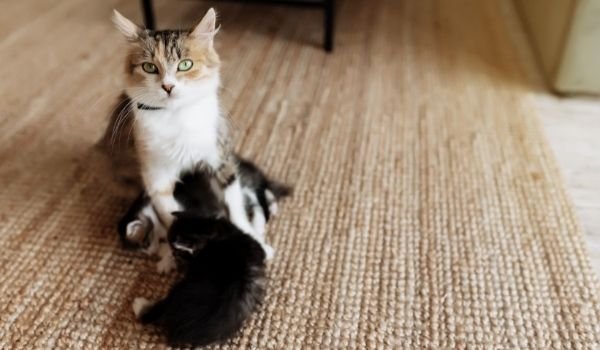
If you have a mother cat at home with a litter of kittens that seems to have developed a habit of hissing, you should take your cue and give some extra space to the mother cat and her little ones. With time, the mother cat will get comfortable with you being closer to her and her little ones. It might take from a few days to 1 or 2 weeks, but things will get normal. Just don’t rush—let your cat take the first step.
Fear of the Unknown
Who is not afraid of the unknown? We all are. Similarly, our cats are also put off-balance when they encounter something unfamiliar. This could be a stranger in the house, a new toy, a new pet in the house, or a change in the environment. While some cats are comfortable with strangers, most lose their cool when they encounter strangers.
Similarly, where some cats are comfortable with other animals, most will have a problem if they see a stranger pet in the house. Besides, cats are not much of a fan of a change in their environment. Have you ever taken your cat to the vet in the car? If yes, you probably would have an idea about what we are talking about. Cats go crazy as you try to put them in the car for the ride to the vet.
In these situations, a cat hissing is trying to communicate that she is uncomfortable. To avoid cat hissing, you need to introduce your cat to the changing environment slowly. If a stranger is coming into the house, you can put your cat in a separate room and make sure that there is no encounter between the two. Similarly, if you are planning on taking your cat to the vet, you should prepare her for it.
Lastly, if you have brought new toys for your cat, do not throw all of them in one go. It might overwhelm her. Instead, you should let your cat explore the toys on her own.
Confrontation with Other Pets
Cats are territorial creatures. They won’t be good when other pets (be it a dog or cat) intrude. Therefore, when a cat sees other pets in her home or encounters one on her walk to the park, you may see a cat hissing at other cats and dogs. This cat hissing seems like an aggressive move, but it is not. According to animal behaviorists, cat hissing is rather a defensive move.
With their hissing, they are trying to communicate to the other party that they should back off as she does not want to make a scene. So cat hissing could mean that she is the victim. An aggressive cat would be doing much more than just staring and hissing.
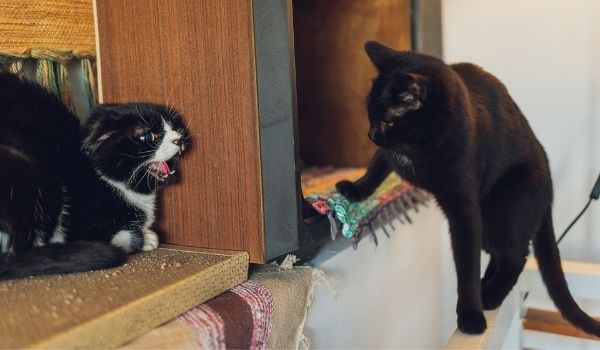
If you witness your cat hissing at some other cat or dog, you should immediately remove your cat from the scene before the cat hissing escalate.
Cat in Pain
As discussed previously, a cat may hiss as she is being approached by someone. This could be a sign that there is something wrong with your cat; she is in pain and doesn’t want to be touched as it would add to their physical pain—unknowingly, you might be touching your cat in the spot that hurts. This is the reason that cats often hiss at the veterinarian as they are going through your cat’s physical examination.
Similarly, cats suffering from arthritis may also hiss when they jump around, which might cause a spike in pain.
If your cat seems to be hissing for no reason, you should take your cue that there is probably something wrong with your cat. She might be in pain, so you should immediately visit the vet. As you are waiting for the vet appointment, you should also try to notice what is making your cat hiss.
Cat is Annoyed
When we are annoyed at someone, we utter swear words, raise our volume, and change our tone. Likewise, our cats hiss when they are annoyed at someone. If your cat is playing outside on the lawn and you try to bring her indoors, she may hiss at you as if she is trying to say, “no, mama, I don’t want to go inside, I want to play.”
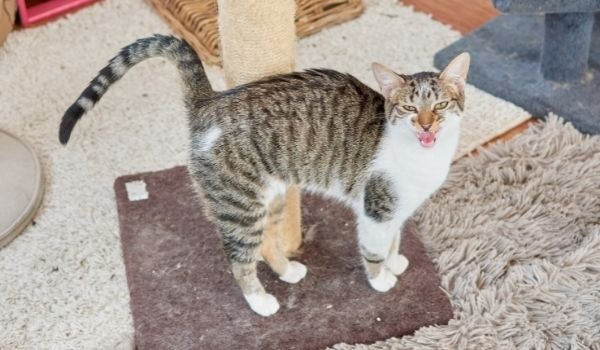
Similarly, a cat may also hiss in annoyance if you refuse to share a treat with her. This usually happens if you are eating some food, such as bacon for breakfast, and your cat comes running asking for a strip, but you have to contritely refuse, as you are not sure if bacon is safe for cats or not.
Why Is My Cat Hissing at Me?
We love our furry feline friends and want the best for them. We do not want to be a reason behind a cat hissing, but unintentionally, we often trigger hissing in cats in several ways. Below we have listed some of the acts of cat owners that may make their cat hiss at them.
Cat Bathing Session
Most cats are not big fans of water. They do not want to get near water, let alone soak and bathe in it. This is the reason that bathing a kitten is a headache for almost every cat owner. Their aversion to water often makes them hiss at their owners who are trying to bathe them.
Nail Trimming and Grooming Sessions
Just like our kids get fussy when it’s time to trim their nails or go to the barber, cats also get a bit quirky when you are prepping for cat nail trimming and grooming sessions. This may make cats hiss at their owners.
Your Smell
If you just came back home and your cat starts to hiss at you, it is probably the smell that is emanating from you. You probably have been to a hospital and are smelling like a clinic. Or maybe, on your way home, you pet your neighbor’s dog or cat. Pet parents that smell like a vet clinic, neighbor’s dog, or cat may trigger their cats to hiss at them.
Using Some Scary Tool or Household Appliance
Cats don’t like noise. So your cat may get annoyed and hiss at you if you are vacuuming or using a noisy, scary household appliance. Similarly, a spray nozzle of a cat flea and tick spray may also scare your skittish cat making her hiss at you.
When to Take a Hissing Cat to the Vet?
While cat hissing is pretty normal and is nothing to be concerned about. But if the cat hissing is more frequent, you should get a bit careful and observe what is making your cat hiss and remove the cause. If your cat is still hissing, you should contact your vet and take her for a checkup.
Always keep in mind that cats are stoic creatures. Meaning that they do not let the world, even their loved ones, get an idea about their sickness and weakness. Therefore, if your cat is frequently hissing, she is probably in extreme pain. So, you should immediately take her to the vet without wasting any time.

